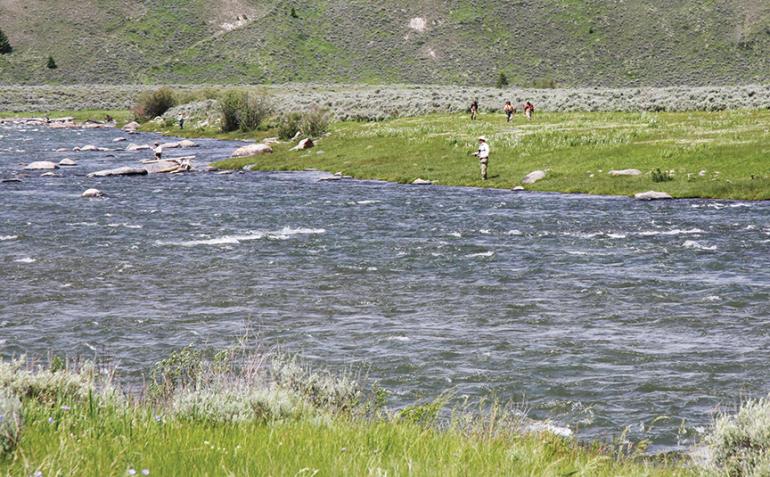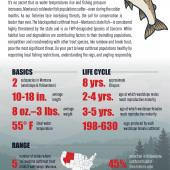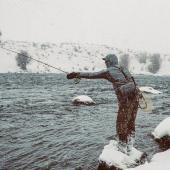Stay in the Flow
Understanding Montana's stream-access law
All surface waters that are capable of recreational use may be so used without regard to the ownership of the land underlying the waters.
In January, the Montana Supreme Court again upheld Montana’s progressive stream-access law, reversing part of an earlier District Court decision regarding access to rivers and streams from bridge right-of-ways. Simply put, the ruling confirms that the public has a right to access Montana streams from bridges. Anglers and other recreationists rejoiced.
The ruling doesn’t give the public the right to trespass or disturb private property, however, and landowners retain the right to build fences for management purposes (i.e., livestock containment) as long as those fences don’t prevent access to the water. With this ruling in mind and fishing season in full swing, FWP wants to remind anglers and other river users of their rights and responsibilities when it comes to public waters and private lands. While members of the public have access to the streams, they must stay below the ordinary high-water mark. The stream-access law does not allow the public to enter legally posted lands bordering streams, or to cross private lands to gain access to streams.
So, what is the ordinary high-water mark?
The ordinary high-water mark is the line created by water after covering riverbanks for significant amounts of time during runoff. It may appear differently depending on the composition of a particular riverbank. If the banks of a river are lined with rocks, look for water staining on the rocks. If the riverbank is primarily made up of grasses, look for markings associated with detritus (or the buildup of silt on the grasses left by receding waters). When in doubt, move to a spot where the marking is obvious or stay as close to the river as possible.
The photo above illustrates some anglers above the high-water mark and some below. Those above the high-water mark would be trespassing on private land.
FWP encourages the public to take advantage of the access opportunities available to them and reminds everyone to respect the private-property rights by adhering to the law.
Stop by the FWP regional office in Bozeman for more information.
Andrea Jones is the FWP Region 3 Information and Education Program Manager.












